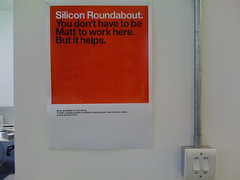[As ever, this is also on the BBC News website]
In the next few days [in fact it is now published] a number of large technology companies, including Google, Microsoft and Yahoo!, are going to announce that they have signed up to a voluntary code of conduct on how they do business in countries that curtail freedom of expression like China and Singapore.
The code has been drawn up by the Washington-based digital rights group The Center for Democracy & Technology and a non-profit in San Francisco, Business for Social Responsibility, and it is believed to address the terms of business companies should adhere too and also to call on them to try to ensure that suppliers and business partners also sign up. Continue reading “Who is responsible in our cloudy world?”




